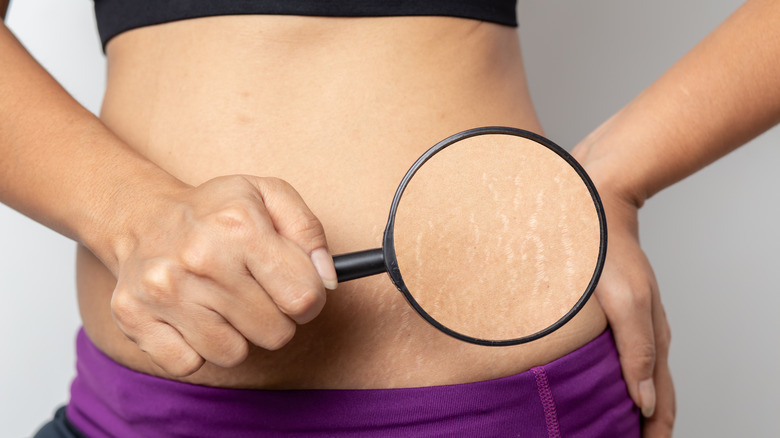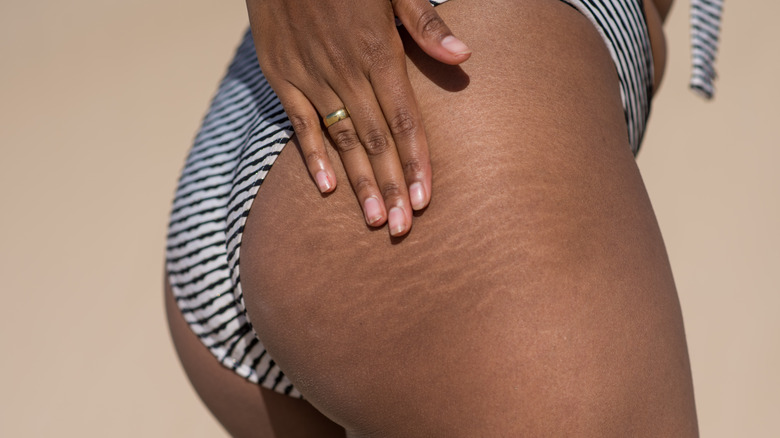What It Really Means When You Have Stretch Marks On Your Stomach
If you've ever noticed stretch marks somewhere on your body, you're not alone. In fact, you're in good company — it's estimated that up to 90% of the general population has them (via Healthline). These bands of lines often show up on bellies, thighs, breasts, upper arms, and buttocks. But what do stretch marks really mean?
While our skin might look straightforward, it's actually made up of three layers: the epidermis, dermis, and hypodermis (via Cleveland Clinic). The epidermis, or top layer, is the protective part we can see. The dermis is the middle layer, which is where hair grows and sweat is produced. The hypodermis, or bottom layer, is the fatty part that connects to muscles and bones.
Our skin contains nerve endings, blood vessels, and melanin, or pigment. As the largest organ in our bodies, the skin is super important — it keeps our body warmth in, keeps germs out, and helps us feel sensation.
How do stretch marks happen?
When the body grows quickly and the skin is stretched a lot in a short amount of time, stretch marks can appear (via Medical News Today). The connective tissue of the dermis, or the middle layer of skin, normally stretches slowly to accommodate regular body growth. But during periods of time like during puberty or pregnancy, when the body is expanding rapidly, the dermis stretches too quickly and tears. This creates a scar where deeper layers of skin and fat show through instead of your normal skin color, leaving a silvery, white, or glossy appearance.
Stretch marks on the stomach are often due to pregnancy, when the belly grows rapidly and then shrinks, according to Medical News Today. Stretch marks can appear on any area of the body where there has been rapid weight gain. They're more likely to happen if you have medical conditions like Marfan syndrome, which can decrease skin elasticity, or if you use corticosteroid creams for an extended period of time.
While there's little evidence that any stretch mark treatments will be effective, the marks do often fade with time. They don't pose any health risk, can be temporary, and are incredibly common.


